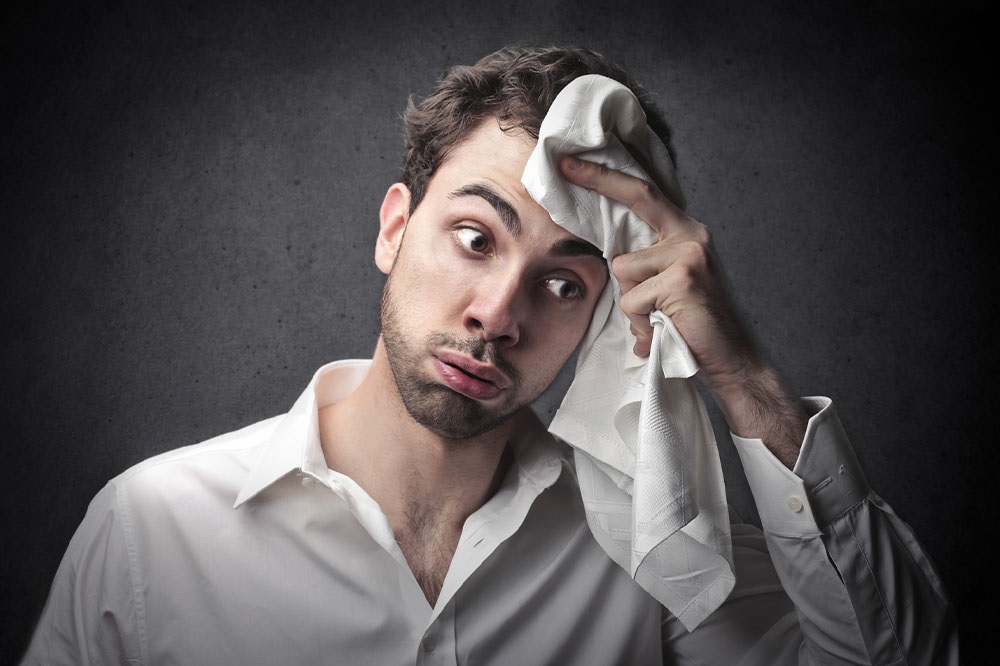
Heat exhaustion – Causes, symptoms, and prevention
Heat exhaustion is a heat-related condition that can occur when the body’s cooling mechanisms become overwhelmed by excessive heat exposure. Recognizing the causes, identifying the symptoms, and understanding preventive measures are crucial for safeguarding yourself from this heat-related ailment. In this article, we delve into all you need to know about heat exhaustion, equipping you with vital knowledge to stay safe and protect your well-being during hot weather conditions.
Causes
- Excessive heat and humidity
When temperatures rise and the air becomes heavy with moisture content, your body’s ability to cool down is challenged. Prolonged exposure to soaring heat and humidity can overwhelm the body’s cooling mechanisms, leading to heat exhaustion. - Strenuous physical activity
Engaging in vigorous exercise or demanding physical labor in hot environments without proper precautions can put you at risk of heat exhaustion. The combination of intense exertion and high temperatures can strain your body’s ability to regulate its temperature, increasing the likelihood of heat exhaustion. - Inadequate fluid intake
Not consuming enough fluids, especially water, during hot weather can lead to dehydration. Without proper hydration, your body struggles to maintain its internal temperature, making you susceptible to heat exhaustion.
Identifying heat exhaustion
Heat exhaustion manifests through various symptoms that indicate the body’s struggle to cope with excessive heat. Look out for the following signs:
- Heavy sweating
- Dizziness
- Fatigue
- Headache
- Nausea
- Rapid heartbeat
- Muscle cramps
These signs often develop gradually and should be taken seriously to prevent the condition from worsening.
Treatment
If you experience any of the above heat exhaustion symptoms, it is advisable to immediately rest in a cool place. Follow these remedies to get relief from the effects of heat:
- Drink plenty of fluids, especially electrolyte drinks to compensate for salt loss during sweating
- Apply ice towels
If you don’t get relief within 20-30 minutes even after trying out these methods, seek medical treatment. Heat exhaustion, if left untreated, may lead to heat stroke.
Preventive methods
- Stay hydrated
Hydration is key to preventing heat exhaustion. It is important to consume plenty of water and other hydrating fluids throughout the day, even if you don’t feel thirsty. Drink at least eight glasses of water every day, and increase your intake during hot weather or when engaging in physical activities. - Opt for light-colored clothing
Choose lightweight, loose-fitting clothing made from breathable fabrics. Opt for light colors that reflect heat rather than absorb it. Wearing a hat with wide brim and sunglasses can also provide additional protection from the sun’s rays. - Avoid overexertion
Schedule outdoor activities during the cooler parts of the day, such as early morning or late afternoon. Take regular breaks in shaded areas and listen to your body. If you start feeling fatigued or overheated, rest and cool down before continuing any physical activity.
As temperatures rise and the summer season approaches, it is important to prioritize your health and well-being by understanding the risks associated with heat exhaustion. Implementing preventive strategies is key to staying safe in hot weather. By staying informed and prepared, you can enjoy a summer season filled with memorable experiences while safeguarding your health. Prioritize self-care, practice sun safety, and make conscious choices to stay cool and protected during hot weather conditions.




